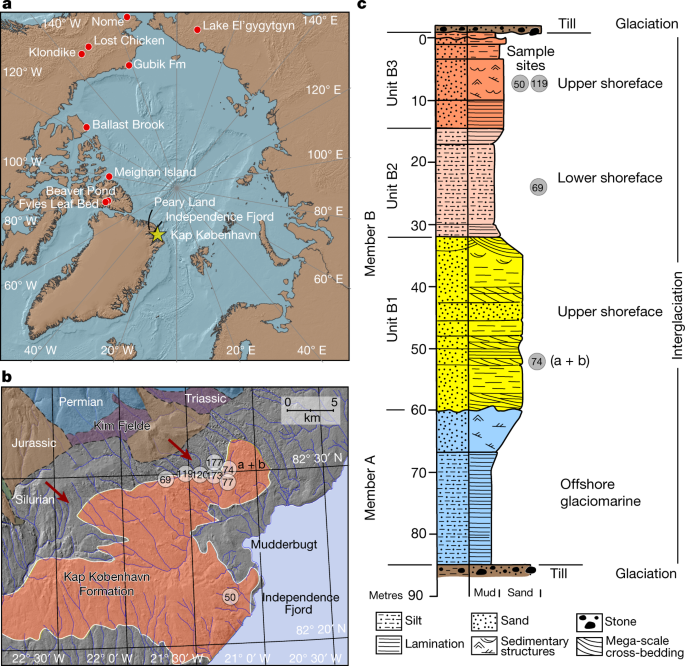6,600万年前に小惑星が地球に衝突し、恐竜が大量絶滅するまで、恐竜は世界を支配していたことが、ある研究により明らかになった。 Dinosaurs dominated the world right up until a deadly asteroid hit the earth, leading to their mass extinction, some 66 million years ago, a study reveals.
2022-12-08 エディンバラ大学
ティラノサウルス・レックスやトリケラトプスなどの鳥類以外の恐竜が絶滅した一方で、カメやワニなどの哺乳類は生き残った理由について、科学者たちは長い間議論してきた。
古生物学者と生態学者からなる国際チームが率いるこの研究は、北米の化石記録1,600件を分析し、新たな答えを導き出した。
研究者たちは、白亜紀の最後の数百万年と小惑星衝突に続く古第三紀の最初の数百万年の間に陸上と淡水に生息した動物の食物連鎖と生態的生息域をモデル化した。
今回の研究により、白亜紀が進むにつれて、哺乳類が食性を多様化し、環境に適応し、生態系の重要な構成要素になっていたことが明らかになった。一方、恐竜は、自分たちが最もよく適応している安定した生態的ニッチに定着していた。
哺乳類は、恐竜の死滅を利用しただけではない。新しい生態学的ニッチを占め、より多様な食事や行動を進化させ、小さな気候変動に素早く適応するなど、多様化を通じて自分たちの優位性を作り出していたのである。
<関連情報>
- https://www.ed.ac.uk/news/2022/dinosaurs-were-on-the-up-before-asteroid-downfall
- https://www.science.org/doi/10.1126/sciadv.add5040
食物網の変化とニッチの安定性が白亜紀末の生存率と絶滅を形成した Shifts in food webs and niche stability shaped survivorship and extinction at the end-Cretaceous
Jorge García-Girón,Alfio Alessandro Chiarenza,Janne Alahuhta,David G. DeMarJr.,Jani Heino,Philip D. Mannion,Thomas E. Williamson,Gregory P. Wilson Mantilla,Stephen L. Brusatte
Science Advances Published:7 Dec 2022
DOI: 10.1126/sciadv.add5040

Abstract
It has long been debated why groups such as non-avian dinosaurs became extinct whereas mammals and other lineages survived the Cretaceous/Paleogene mass extinction 66 million years ago. We used Markov networks, ecological niche partitioning, and Earth System models to reconstruct North American food webs and simulate ecospace occupancy before and after the extinction event. We find a shift in latest Cretaceous dinosaur faunas, as medium-sized species counterbalanced a loss of megaherbivores, but dinosaur niches were otherwise stable and static, potentially contributing to their demise. Smaller vertebrates, including mammals, followed a consistent trajectory of increasing trophic impact and relaxation of niche limits beginning in the latest Cretaceous and continuing after the mass extinction. Mammals did not simply proliferate after the extinction event; rather, their earlier ecological diversification might have helped them survive.


